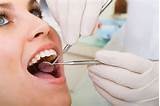 Here at Pristine Periodontics and Implants, we offer many exceptional dental solutions to help our patients restore their self-confidence, smile ascetics, and oral health. We also believe that it is important for our patients to know what happens after their dental implants procedure so that they can better prepare themselves for long-term success. This blog is a compilation of information intended to help our patients understand what will happen after they leave our office. If after reading this article, you still have questions, please feel free to give us a call for more information.
Here at Pristine Periodontics and Implants, we offer many exceptional dental solutions to help our patients restore their self-confidence, smile ascetics, and oral health. We also believe that it is important for our patients to know what happens after their dental implants procedure so that they can better prepare themselves for long-term success. This blog is a compilation of information intended to help our patients understand what will happen after they leave our office. If after reading this article, you still have questions, please feel free to give us a call for more information.
Swelling
Swelling is a common side effect after oral surgery and usually continues for 2 to 3 days after. You can help reduce this side effect by placing ice packs on the surgical site every 20 minutes. If swelling does not stop five days after your surgery, this may be a sign that you have an infection.
Bleeding
Moderate bleeding is normal after oral surgery. To control excess bleeding, bite down on a gauze pack for several minutes. Also, be sure to sit upright and avoid strenuous physical activity to reduce bleeding. Call our office right away for further direction if you notice excessive or prolonged bleeding.
Pain
The amount of pain you experience after your procedure will typically vary depending on your tolerance for pain. However, most of our patients say that they experience only mild discomfort after dental implant surgery. Anesthesia is typically administered during the surgery and over-the-counter pain medication can be used afterward as needed to reduce residual pain. Be sure not to take over the counter medications with prescribed medication unless Dr. Sayed advises you to do so.
Nausea
Sometimes our patients experience problems like nausea and/or vomiting after the anesthesia starts to wear off, or when they swallow excess blood. These kinds of side effects are common reactions, and should be carefully monitored. If nausea is a problem, try eating saltine crackers or sipping ginger ale until the feeling passes. If nausea continues longer than a couple of days, stop taking any medications and call our office for further directions.
Bruising
Bruising and discoloration, around the surgical site and face, are also normal parts of oral surgery. These should last for about 2-3 days after your procedure. Ice can help reduce bruising and should be applied regularly to minimize swelling and discoloration.
Antibiotics
Antibiotics are usually prescribed to prevent infection after surgery. If you have been given antibiotics, take them only as directed by your doctor. You may also be prescribed an antibiotic mouth rinse. Use this as directed. Discontinue antibiotic use if an adverse reaction occurs and call our office right away.
Physical Activity
After oral surgery, it is best to rest and relax. Patients should avoid bending, lifting, or strenuous activity for 3-4 days after any oral surgery. These activities can increase bleeding, swelling, or other serious problems.
Eating After Oral Surgery
Patients will need to avoid chewing or biting until sensation returns to the tongue and mouth area. Soft room temperature foods can be consumed as soon as all of the feeling returns to the mouth. However, patients should chew away from the implant site, avoid hard foods, and use caution for approximately 6 weeks after implant surgery. This will ensure that the implant fuses properly with your jawbone.
Drinking After Surgery
Patients should NOT DRINK THROUGH A STRAW, RINSE, OR SPIT after oral surgery. These actions could cause dangerous suction and excessive bleeding in your mouth. If bleeding or excess saliva collecting in your mouth becomes a problem, lean over and let the excess fluid drip into the sink until it stops. Contact our office if it continues longer than a few hours.
Complications
Normal side effects after oral surgery are difficulty opening your mouth, dry lips, sore throat, pain when swallowing, and stiffness of the jaw muscles.
NOTE: Even with proper aftercare, a small number of patients experience an increase in temperature after oral surgery. If temperature increases for more than 24 hours, you will need to call our office for further direction. A small number of patients may also experience infection after their implant placement. However, these problems can usually be controlled with prompt medical attention and good follow-up care.
Come Get Dental Implants In Birmingham, MI
The skilled staff members at Pristine Periodontics and Implants have many years of experience in fixing smiles with wonderful tooth replacement treatments like dental implants. If you would you like to learn more about trying out this amazing product or payment options, please check out the rest of our infosite or call one of our friendly staff members for further details. If you live in or around the Birmingham, MI area, call us today for your dental implants consultation with Dr. Sayed.
Medical Disclaimer
“The information on this site is not intended or implied to be a substitute for professional medical advice, diagnosis, or treatment. All content and information contained on or available through this infosite is for general information purposes only. Pristine Periodontics and Implants makes no representation and assumes no responsibility for the accuracy of information contained on or available through this infosite, and such information is subject to change without notice. You are encouraged to confirm any information obtained from or through this infosite with other sources, and review all information regarding any medical condition or treatment with your physician. NEVER DISREGARD PROFESSIONAL MEDICAL ADVICE OR DELAY SEEKING MEDICAL TREATMENT BECAUSE OF SOMETHING YOU HAVE READ ON OR ACCESSED THROUGH THIS INFOSITE.”
